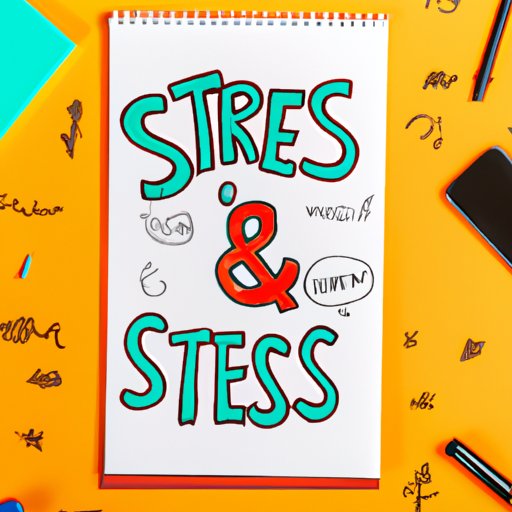
I. Introduction
Stress is a common experience that affects individuals on a daily basis. Whether it is due to work, relationships, academics or simply the challenges of everyday life, stress can have significant impacts on overall health and wellbeing. This article aims to explore the various effects of stress, including its physical impact on the body, its effect on mental health, its impact on personal relationships and its effects on workplace productivity, academic performance, and chronic illness.

II. The Physical Effects of Stress
When the human body experiences stress, it responds by releasing stress hormones such as cortisol and adrenaline. This response is commonly known as the ‘fight or flight’ response and has been essential to human survival. However, prolonged or chronic exposure to stress can have significant impacts on physical health.
Stress can weaken the immune system, making an individual more vulnerable to infections and diseases. It can also increase the risk of heart disease by elevating blood pressure and cholesterol levels, which can in turn affect the cardiovascular system. In addition, stress can cause gastrointestinal problems such as acid reflux and ulcers. It can also exacerbate symptoms in individuals with chronic conditions such as asthma or arthritis, among others.
III. The Mental Health Effects of Stress
Stress can also impact mental health by increasing the risk of anxiety, depression, and PTSD. Prolonged stress can cause changes in brain chemistry, leading to mood swings and irritability. Additionally, it can negatively impact sleep quality, leading to fatigue, reduced concentration and overall impairments in cognitive function.
To manage stress and reduce the risk of developing mental health issues, there are a variety of tools and resources available. Individuals can engage in physical activity, mindfulness, or other stress-reducing activities, such as meditation or yoga. They can also seek support from a healthcare provider or engage in talk therapy or other interventions.
IV. The Effect of Stress on Personal Relationships
Stress can also affect personal relationships, causing conflicts, disconnection, and social isolation. High levels of stress can lead to irritability and moodiness, which can make it difficult to engage positively with others. In addition, stress can cause anxiety, which may make it difficult to maintain social connections and engage with others in a meaningful way.
Strategies for managing stress and preserving important relationships include communication, compromise, and self-care. Learning communication skills, such as active listening and empathetic communication, can help individuals effectively manage conflicts. Setting healthy boundaries and engaging in self-care activities, such as exercise, meditation, or time for relaxation, can also help reduce stress and nourish personal relationships.
V. The Impact of Stress on Workplace Productivity
Stress can also impact workplace productivity by decreasing motivation and engagement. Chronic stress can lead to burnout and absenteeism, making it difficult to maintain a consistent workflow or engage in tasks effectively.
There are several ways to reduce stress in the workplace, such as promoting a positive work environment, encouraging employee engagement and personal wellness, and providing resources for stress reduction and management. Providing flexibility and support for work-life balance can also help reduce stress and foster a positive work environment.
VI. How Stress Can Impact Academic Performance
In addition to its impact on physical and mental health, stress can also impact academic performance. High levels of stress can impair cognitive function, making it difficult to learn and retain information. Stress can also negatively impact memory and concentration, making it difficult to engage with academic material effectively.
Strategies for managing stress during academic pursuits include time management and organization, creating healthy study habits, and engaging in self-care activities. Seeking support from professors, peers, or tutors can also be beneficial. Resources such as mindfulness techniques or campus resources such as counseling services can also be useful tools to manage stress during academic pursuits.
VII. The Link Between Stress and Chronic Illness
Finally, stress can increase the risk of chronic illness. Prolonged exposure to stress can affect the immune system, making an individual more vulnerable to infections and diseases. It can increase the risk of heart disease, affect gastrointestinal function, and exacerbate symptoms of chronic conditions.
To manage stress and reduce the risk of chronic illness, there are several strategies that individuals can use, including engaging in physical activity, engaging in stress-reducing activities such as yoga or meditation, and seeking healthcare support. Additionally, practicing stress-reducing techniques and engaging in healthy self-care habits can reduce the risk of chronic illness as well.
VIII. Conclusion
Overall, stress is a significant issue affecting individuals in many areas of their life, including physical and mental health, personal relationships, workplace productivity, academic performance, and chronic illness. By practicing stress management techniques and engaging in self-care, it is possible to reduce the impact of stress on overall health and wellbeing. It is important to prioritize stress reduction and self-care strategies in everyday life to promote a healthy and fulfilling lifestyle.




